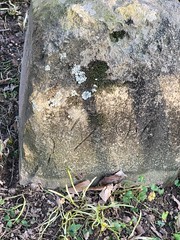Here are some core readings for the Chinese Communist Party Central Commission for Discipline and Inspection dated mid-August 2015 and now released on the Party central corruption-fighting website at http://www.ccdi.gov.cn/xsjw/series11/201509/t20150920_62118.html .
Interesting fodder for meditating on how the Party is struggling to find a system fix to decorruptify itself without exposing itself to democratic alternatives.
The discussion of the permanent branches of the Commission to be resident at lower level State and Party organization is a significant departure from the Dual Leadership System that has made China very decentralized and promoted a passive attitude towards law and central government directives. Lack of legal strictures on the Party itself could mean that if this succeeds then officials at various levels will be more obedient but even more passive for fear of the sky falling in on them.
According to the readings, the 18th Congress of the Communist Party authorized the Central Discipline and Inspection Commission to create permanent branches in central party and central government organizations. 党的十二大通过的党章规定:“党的中央纪律检查委员会根据工作需要,可以向中央一级党和国家机关派驻党的纪律检查组或纪律检查员。”The readings say coverage is still spotty — about 50 out of 140-odd Party and central government organizations. The readings mention that the branch disciplinary offices are responsible to the leadership of the organizations they inhabit — I wonder if that could be a system flaw in anti-corruption work. 十八届三中全会决定第36条规定,派驻机构对派出机关负责,履行监督职责。
I had the impression from my readings that there were already some Central Discipline and Inspection Commission branch office in the provinces but I may be mistaken. According to this reading, details for that will be finalized by the end of 2015. 今年年底前,中央纪委还要再新设部分派驻机构,并对保留的派驻机构进行改革和调整,这样就能实现派驻全覆盖的目标。中央纪委已经为省区市推进全面派驻作出示范,省一级要“照方抓药”,加强派驻机构建设,切实强化党内监督
Promote Comprehensive Deployment of CCDI Personnel in Supervised Party and State Organizations
Source: Central Commission for Discipline Inspection website Published: 2015-09-21 06:00
The comprehensive and strict governance of the Party necessarily requires accelerating the full coverage of Party and state organizations, so that there shall be no gaps in the supervision of the Party and state organs at the central level. The stationed agencies should truly reflect the positioning of the discipline inspection committee in the party constitution and effectively perform the three tasks assigned by the party constitution.
Since the 18th Party Congress, we have started with the construction of the Party and the fight against corruption, resolutely curbed the momentum of the spread of corruption, and seriously punished a number of corrupt people. The problems of these people will be found in the root of the metamorphosis of ideals and beliefs, loss of awareness of purpose, indifference to the concept of the party, organizational laxity, lax discipline, the reason is that the management of the party is not strict, the party’s leadership is weakened. Party style and clean government construction and anti-corruption struggle is an important part of the overall strict governance of the party, but by no means all, the comprehensive strict governance of the party can not be equated with anti-corruption. Comprehensive strict governance of the party, must be in all aspects of the party’s construction to reflect the “comprehensive strict” requirements, adhere to the ideals and beliefs of the purpose of this high line, the discipline and rules at the forefront, to guard the bottom line of discipline, to solve the problem of what to build the party to manage the party. This is the strategic deployment of the Party Central Committee to keep pace with the times, and the deepening of the understanding of the laws of party building. The central and state organs in the national governance system is important, only the central organs of the overall strict governance of the party really lead from above. The central and state organs and all stationed agencies must keep up with the requirements of the central government in terms of ideology, awareness and action, and put the party in charge and strictly govern the party into practice.
Explore the full coverage of all Party and state organizations, and the steps of the integrated stationing of the subordination should be bigger. To increase reform and innovation, in-depth organizational and institutional innovation. The practice has proved that the integrated stationing is less influenced by the supervised department, which is more conducive to the authority and advantages of the stationing. The Central Commission for Discipline Inspection and the provincial discipline inspection committees should increase the efforts to send to the party’s working departments, the corresponding integration of the administrative departments stationed agencies, the point to point power out, the integration of the integration, the abolition of the abolition, the limited staff concentration, coordination arrangements, so that the good steel used on the edge of the knife. As long as the direction is correct, immediate action, a step forward is a victory.
Service to the overall strict governance of the party, to highlight the focus of supervision. The leadership of the party is the most essential feature of socialism with Chinese characteristics. The first task of the stationed agency is to keep an eye on whether the department in which it is stationed adheres to the leadership of the Party and effectively plays the role of the Party’s leading core. The leadership of the Party means something special. CCDI personnel stationed at an organization should monitor and check whether the department in question has implemented the requirements of the Chinese Communist Party Constitution, adhered to the party’s ideals and beliefs and purposes, implemented the party’s lines and policies, maintained a high degree of consistency with the party’s central government, and consciously safeguarded the central authority and ensured the smooth flow of government orders. To urge the party group (party committee) in the department to effectively carry out the main responsibility of party management, to see the overall strict governance of the party management, governance, the spirit of the eight provisions of the Central Committee, the selection of personnel related provisions have not been put into practice. The “key minority” should be focused upon, and efforts should be made to strengthen the supervision of the department’s own organs and directly subordinate units, and to strengthen the supervision of the department’s leadership team and its members and cadres above the departmental level. As long as the central authorities are watched, there will be no major problems on this front.
The head of the discipline inspection team should be loyal to the party, personal cleanliness and courage to take charge. The kind of person chosen to be the head of the discipline inspection team reflects the party’s organizational line, which has always been subordinate to the political line. The Central Commission for Discipline Inspection (CCDI) sent out the stationed agencies, the CCDI do, the discipline inspection group should do, no political awareness and political level, you can not be the head of the discipline inspection group. The stationed discipline inspection team is the “resident inspection team”, to focus on the overall strict governance of the party, the real responsibility of supervision and discipline accountability.
Part II Strengthening Agencies where CCDI Personnel are Stationed
Innovative Organizational System to Achieve Full Coverage
Source: Central Commission for Discipline Inspection website Published: 2015-08-24 06:00
The Fifth Plenary Session of the Central Commission for Discipline Inspection proposed to adhere to a balanced, gradual and connotative development to achieve a comprehensive stationing of party and state organs at the central level, so that there are no dead ends or gaps in party supervision. This is an important measure to implement the spirit of the Third Plenary Session of the 18th CPC Central Committee and deepen the reform of the discipline inspection system.
Trust cannot replace supervision. All power must be supervised, and there is no exception to the supervision of the Party. In the past, the Central Commission for Discipline Inspection did not send discipline inspection groups to the party’s working departments, nor to the National People’s Congress, the CPPCC organs, supervision left a lot of gaps, some gaps are precisely the key sectors. The party should control the party, strict governance of the party from the central level of the party and state organs to do, and not allow the “dark under the lamp”. The central authorities strictly rule the party, the party style and clean government construction and anti-corruption struggle are tightly grasped, the party is the best demonstration, the most distinctive guide, so that the above can lead down, control the whole party. Coordinated promotion of the “Four Comprehensives”
[Note: The Four Comprehensives 四个全面战略布局
- Comprehensively build a moderately prosperous society
- Comprehensively deepen reform
- Comprehensively govern the nation according to law
- Comprehensively strictly govern the Party.]
Comprehensive strict governance of the party is the fundamental guarantee, and must accelerate the promotion of a comprehensive station. Last year, the Central Committee decided to set up seven new agencies in the General Office of the Central Committee, the Organization Department of the Central Committee, the Propaganda Department of the Central Committee, the United Front Work Department of the Central Committee, and the organs of the National People’s Congress, the General Office of the State Council and the National Committee of the Chinese People’s Political Consultative Conference, overseeing more than 50 departments and units. This is the first time in the history of the party and is a milestone, reflecting the boldness of the iron that needs to be hardened by itself. With the strong support of the resident departments, the seven new discipline inspection teams have been successfully set up and are working, and have begun to play a supervisory role. By the end of this year, the Central Commission for Discipline Inspection will have to set up some more new stationed agencies and reform and adjust the retained ones, so that the goal of full coverage of the stationed agencies can be achieved. The Central Commission for Discipline Inspection has already made a model for provincial and municipalities to promote full stationing, so the provincial level should “follow the prescription” and strengthen the stationing agencies to effectively strengthen the supervision within the party.
In order to promote a comprehensive stationing, it is necessary to implement organizational and institutional innovations. If we still follow the past way, to achieve full coverage of the central party and state organs stationed, it means that a large number of institutions and positions need to be increased. We can’t talk about reform to compile and increase staff, and we can’t pull out a huge team because we want to strengthen a certain area of work, which is not in line with the essence of the central spirit. Reform is to continue to promote organizational and institutional innovation with the development of practice. It is necessary to adhere to the principle of streamlining and efficiency, insist on internal and scientific development, revitalize the stock, optimize the structure and integrate the strength to maximize the benefits of reform. To achieve comprehensive deployment of CCDI personnel, we must innovate institutional arrangements around strengthening supervision and disciplinary accountability according to work needs and business relevance, and adopt a combination of separate stationing and subordinate stationing. For departments with large system size, many units under their direct supervision, and a wide range of supervisory targets, separate stationing agencies are set up; for departments with similar and related business or small system size and few supervisory targets, stationing agencies are set up at the same time. The centrally located station has changed the single mode of “point to point”, allowing the discipline inspection team to “eat a meal, manage multiple things”, solving the problem of oversight can not face. The discipline inspection group that has been assigned to supervise many units and has a heavy workload must concentrate its limited strength into a fist so that it can form a fighting force.
The reform of the stationed agencies involves a wide range of areas, departments and complex situations, and cannot be achieved overnight, but must be the right direction, gradually advance. It is necessary to start from the actual situation, unify the planning, implement step by step, improve continuously in practice, summarize the experience in time, formulate special rules for the work of the stationed agencies, and realize the system innovation of stationed supervision along with the organizational innovation.
Part 3 Strengthening Agencies where CCDI Personnel are Stationed
Supervision and disciplinary accountability is the primary responsibility
Source: Central Commission for Discipline Inspection website Published: 2015-08-31 06:00
The stationed agencies are an important part of the Discipline Inspection Commission, the main business is the construction of the party style and clean government and the fight against corruption, the primary responsibility is to supervise and enforce discipline and accountability. The stationed agencies should accurately understand the requirements of the overall strict governance of the party, the position is accurate, the responsibilities to find the right, and truly focus on the central task.
The deployments to supervised Party and government organization is done in order to make responsibility clear so that those responsible will dare to take charge. The essence of the deployed CCDI personnel supervision is the supervision of the party organization and leading cadres at the lower level by the higher discipline inspection committee, not the same level of supervision, and the relationship between the stationed institution and the department in which it is stationed is that of supervision and being supervised. The Third Plenary Session of the Eighteenth Central Committee decided to “implement a unified name and unified management” for the stationed discipline inspection agencies. Now the name of the Central Commission for Discipline Inspection’s stationed agencies is unified as “Central Commission for Discipline Inspection’s stationed discipline inspection team”, which performs disciplinary inspection functions and supervises the leading team of the stationed department to implement the main responsibility of party management in accordance with the provisions of the party constitution. The six main duties of the stationed agencies as stipulated in the Opinions on Strengthening the Construction of the Central Discipline Inspection Commission Stationed Agencies are a concretization of the supervision and enforcement of discipline and accountability. The head of the discipline inspection team serves as a member of the party group of the department in which he or she is stationed, but he or she is not in charge of other business work and must be dedicated to discipline inspection, upholding the party constitution and other party regulations, checking the implementation of the party line and policies and resolutions, and promoting the construction of the party style and clean government and anti-corruption work of the department in which he or she is stationed.
Since the 18th Party Congress, the stationed agencies, in accordance with the requirements of the Central Commission for Discipline Inspection, focus on the central task, turning functions, ways and styles, and achieve certain results, but still far from being in place, must continue to deepen with the changes in the situation and the development of practice. The discipline and rules to the front is the deepening of the “Three Transformations” sanzhuan [zhuǎn zhínéng, zhuǎn fāngshì, zhuǎn zuòfēng transforming functions, transforming methods, and transforming work styles] is the direction of the stationing agencies efforts. To adapt to the requirements of the overall strict governance of the party, strengthen the discipline of the party and state organs, focus on the construction of the party in the departmental organs, supervise the role of the party committee and the discipline inspection committee, the implementation of the party’s leadership in the daily management and supervision, to truly catch the early grasp of the small, discipline control of all party members, so that the red face, bite the ear regularly. The stationed agencies keep an eye on the “chaos”, control the “inaction”, there are problems with the first warning, and then do not correct the proposed organizational treatment, adjust the post. This reflects the requirements of strengthening discipline, and also the implementation of the central government’s regulations on the “ability to get on and off” of leading cadres.
Unlike the inspection, the stationed agencies not only have to extend their ears and eyes to find problems, but also to report and deal with them early. The focus of the Central Commission for Discipline Inspection’s stationed agencies is on the leading team of the department, the cadres in control and the cadres at the departmental level. To start with the problem clues, the tentacles of supervision extended to the front end, received the problem reflected, found clues to deal with immediately. The company’s main goal is to improve its ability to find problems and deal with them by understanding the history and culture of the department in which it is based and the characteristics of the industry, grasping the overall situation of the party style and clean government, analyzing the deep-seated reasons for corruption, and dealing with the relationship between the trees and the forest.
The more focused the duties, the deeper and more effective the work can be. The stationed agencies should keep their jobs, focus and focus again, strengthen supervision and discipline accountability, and make every effort to fulfill the duties given by the Chinese Communist Party Constitution.
http://www.ccdi.gov.cn/xsjw/series11/201509/t20150920_62118.html
推进全面派驻 监督全面从严
来源:中央纪委监察部网站 发布时间:2015-09-21 06:00
全面从严治党,必然要求加快推进派驻全覆盖,实现对中央一级党和国家机关的监督不留空白。派驻机构要把党章对纪委的定位真正体现出来,切实履行党章赋予的三项任务。
党的十八大以来,我们从党风廉政建设和反腐败斗争入手,坚决遏制腐败蔓延势头,严肃惩治了一批腐败分子。把这些人的问题归结起来就会发现,根子在于理想信念蜕化、宗旨意识丧失,党的观念淡漠、组织涣散、纪律松弛,原因是管党治党不严、党的领导弱化。党风廉政建设和反腐败斗争是全面从严治党的重要组成部分,但绝不是全部,不能把全面从严治党等同于反腐败。全面从严治党,必须在党的建设的各个方面体现“全面从严”的要求,坚持理想信念宗旨这条高线,把纪律和规矩挺在前沿,守住纪律底线,解决建党管党治党靠什么的问题。这是党中央与时俱进作出的战略部署,是对党的建设规律认识的深化。中央和国家机关在国家治理体系中地位重要,只有把中央机关全面从严治党抓好了,才能真正以上率下。中央和国家机关、各派驻机构都要在思想上、认识上、行动上跟上中央的要求,把党要管党、从严治党落到实处。
探索派驻全覆盖,归口综合派驻的步子要再迈大一些。要加大改革创新力度,深入推进组织和制度创新。实践证明,归口综合派驻受被监督部门的影响比较小,更有利于发挥派的权威和驻的优势。从严治党重要的是监督党的工作部门,中央纪委和省级纪委要加大向党的工作部门派驻的力度,相应整合行政部门派驻机构,把点对点的力量抽出来,该整合的整合、该撤并的撤并,把有限的人员集中起来、统筹安排,让好钢用在刀刃上。只要方向正确,立行立改,迈出一步就是胜利。
服务全面从严治党,要突出监督重点。党的领导是中国特色社会主义的最本质特征。派驻机构第一位的任务,就是紧盯驻在部门是否坚持了党的领导、切实发挥了党的领导核心作用。党的领导是有具体内涵的。派驻机构要监督检查驻在部门是不是执行了党章要求,是不是坚持了党的理想信念宗旨,是不是贯彻了党的路线方针政策,是不是与党中央保持高度一致,是不是自觉维护中央权威、确保政令畅通。要督促驻在部门党组(党委)切实履行管党治党主体责任,看看全面从严治党管没管、治没治,中央八项规定精神、选人用人有关规定有没有落到实处。要抓住“关键少数”,着力加强对驻在部门本级机关和直属单位的监督,加强对驻在部门领导班子及其成员和司局级以上干部的监督。只要把中央机关看住了,这条战线就不会出大问题。
纪检组长要对党忠诚、个人干净、敢于担当。选什么样的人当纪检组长,体现的是党的组织路线,而组织路线从来都服从于政治路线。派驻机构是中央纪委派出的,中央纪委干什么,纪检组就要干什么,没有这个政治觉悟和政治水平,就不能当纪检组长。派驻纪检组就是“常驻不走的巡视组”,要聚焦全面从严治党,真正把监督执纪问责的职责担起来。
加强派驻机构建设之二
创新组织制度 实现全面派驻
来源:中央纪委监察部网站 发布时间:2015-08-24 06:00
中央纪委五次全会提出,坚持统筹兼顾、循序渐进、内涵发展,实现对中央一级党和国家机关的全面派驻,使党内监督不留死角、没有空白。这是落实党的十八届三中全会精神、深化纪检体制改革的重要举措。
信任不能代替监督。所有权力都要受到监督,党内监督没有例外。过去,中央纪委没有向党的工作部门派出纪检组,也没有向人大、政协机关派驻,监督留了不少空白,有的空白恰恰是要害部门。党要管党、从严治党要从中央一级党和国家机关做起,不允许“灯下黑”。中央机关把从严治党、党风廉政建设和反腐败斗争都抓紧抓好了,对全党就是最好的示范、最鲜明的导向,这样才能以上率下、管好全党。协调推进“四个全面”,全面从严治党是根本保证,必须加快推进全面派驻。去年中央决定,中央纪委在中央办公厅、中央组织部、中央宣传部、中央统战部和全国人大机关、国务院办公厅、全国政协机关等新设7家派驻机构,监督50多个部门和单位。这在党的历史上是首次,具有里程碑意义,体现了打铁还需自身硬的气魄。在驻在部门的大力支持下,7家新设派驻纪检组已经顺利组建并开展工作,开始发挥监督作用。今年年底前,中央纪委还要再新设部分派驻机构,并对保留的派驻机构进行改革和调整,这样就能实现派驻全覆盖的目标。中央纪委已经为省区市推进全面派驻作出示范,省一级要“照方抓药”,加强派驻机构建设,切实强化党内监督。
推进全面派驻,必须实施组织制度创新。如果还按照过去的方式,要实现对中央一级党和国家机关派驻全覆盖,就意味着需要增加大量机构编制和职数。我们不能一讲改革就要编制、增人员,不能因为要加强某一个方面的工作就拉出一支庞大的队伍,这不符合中央精神的实质。改革就是要随着实践的发展,持续推进组织和制度创新。必须本着精简、高效的原则,坚持内涵发展、科学发展,盘活存量、优化结构、整合力量,使改革效益最大化。实现全面派驻,就要根据工作需要和业务关联性,围绕强化监督执纪问责创新制度安排,采取单独派驻和归口派驻相结合的方式。对系统规模大、直属单位多、监督对象广的部门,单独设置派驻机构;对业务相近相关或者系统规模小、监督对象少的部门,归口设置派驻机构。归口派驻改变了“点对点”的单一模式,让纪检组“吃一家饭、管多家事”,解决监督抹不开面子的问题。实行归口派驻的纪检组监督单位多、工作任务重,必须把有限的力量集中起来、攥成拳头,这样才能形成战斗力。
派驻机构改革涉及的领域广、部门多、情况复杂,不可能一蹴而就,必须把准方向、逐步推进。要从实际出发,统一规划、分步实施,在实践中不断完善,及时总结经验,制定派驻机构工作的专门规则,伴随着组织创新实现派驻监督的制度创新。
加强派驻机构建设之三
监督执纪问责是首要职责
来源:中央纪委监察部网站 发布时间:2015-08-31 06:00
派驻机构是纪委的重要组成部分,主业就是党风廉政建设和反腐败斗争,首要职责是监督执纪问责。派驻机构要准确领会全面从严治党的要求,把位定准、把职责找准,真正聚焦到中心任务上来。
定位准才能责任清,责任清才能敢担当。派驻监督本质是上级纪委对下级党组织和领导干部的监督,不是同级监督,派驻机构与驻在部门是监督与被监督的关系。十八届三中全会决定派驻纪检机构“实行统一名称、统一管理”。现在中央纪委派驻机构名称统一叫“中央纪委派驻纪检组”,按照党章规定,履行纪律检查职能,督促驻在部门领导班子落实管党治党主体责任。《关于加强中央纪委派驻机构建设的意见》规定的派驻机构6条主要工作职责是监督执纪问责的具体化。纪检组长担任驻在部门党组成员,但不分管其他业务工作,必须一心一意干纪检,维护党章和其他党内法规,检查党的路线方针政策和决议执行情况,推进驻在部门的党风廉政建设和反腐败工作。
党的十八大以来,派驻机构按照中央纪委要求,聚焦中心任务,转职能、转方式、转作风,取得一定成效,但还远未到位,必须随着形势的变化和实践的发展不断深化。把纪律和规矩挺到前面就是“三转”的深化,是派驻机构努力的方向。要适应全面从严治党要求,加强党和国家机关的纪律建设,聚焦驻在部门机关党的建设,督促机关党委、机关纪委发挥作用,把党的领导落实到日常管理和监督中,真正做到抓早抓小,用纪律管住全体党员,让红红脸、咬咬耳朵经常化。派驻机构要盯住“乱作为”、管住“不作为”,对有问题的先警告,再不改正就建议组织处理、调整岗位。这样就体现了加强纪律建设的要求,也落实了中央有关领导干部“能上能下”的规定。
与巡视只去发现问题不同,派驻机构不但要伸长耳朵、瞪大眼睛,发现问题,还要早报告早处置。中央纪委派驻机构监督的重点对象是驻在部门领导班子、中管干部和司局级干部。干监督的活儿就要关心“张家长、李家短”,关注干部的思想、工作和生活情况。要从问题线索抓起,把监督的触角延伸到前端,收到问题反映、发现线索就要马上处理。要深入了解驻在部门的历史文化、行业特点,把握党风廉政建设的整体状况,分析腐败发生的深层次原因,处理好“树木与森林”的关系,提高发现问题、处置问题的能力。要创新方式方法,学会十个手指弹钢琴,加强同巡视组、派出纪委纪检监察室、机关党工委和纪工委、驻在部门机关纪委等单位的联系,既分工负责,又协同配合,形成监督合力。
职责越聚焦,工作才能越深入、越有成效。派驻机构要守住本职,聚焦聚焦再聚焦,强化监督执纪问责,全力以赴履行好党章赋予的职责。




Pingback: The Sinocism China Newsletter 09.22.15 | The Sinocism China Newsletter
Pingback: 2022: PRC Minister Xiao Yiqing Under Investigation | 高大伟 David Cowhig's Translation Blog